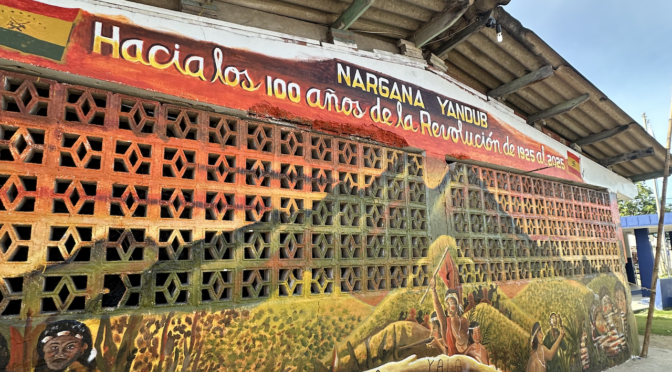By Ariana Guerrero, Undergraduate student in the UT International Relations and Global Studies Department, Race Indigeneity and Migration Program, and Bridging Disciplines Program
My time in Panama has been enriching and filled with personal and professional growth. My first task was acclimating to a new city and to commuting and having a full-time job in such a diverse city. I loved practicing my Spanish in a professional setting through my internship. This was the first time I had the opportunity to speak my native language outside my home so extensively and freely for an extended period of time. Since my Mexican accent is different from that of my fellow Panamanian coworkers and neighbors, it was exciting to see how cultures can be similar and still unique.
At International IDEA’s Panama office, I researched many different issues, from democratic resilience to discourses of hate in politics. I also had the great opportunity to work on an interactive project visiting different provinces of Panama to talk to election workers and youth about their experiences participating in the country’s first-ever juvenile and youth symbolic election. We did this as part of a delegation put together by the Electoral Tribunal of Panama and the Institute of Democratic Studies (INED) to evaluate the youth voting project.
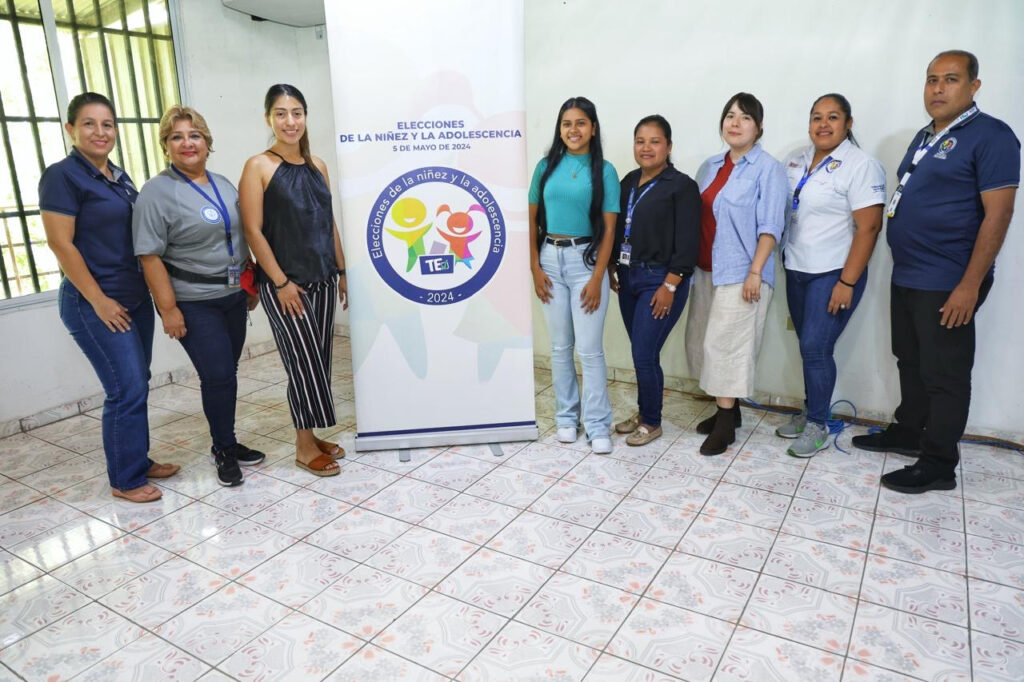
Panama’ youth voting project and its respective regional elections varied greatly from those I participated in as a child. In elementary school in the United States, I remember voting by clicking the president we supported on a computer screen. In Panama’s youth elections, children and teenagers instead voted for democratic values. The purpose of having values as options instead of presidential candidates was to give a democratic voice to children on what they wanted to see in their communities and in their everyday lives.
The results of the youth election varied, but overall, the democratic value of respect won the vote of these young voices. Unfortunately, in so many situations and countries it has become normalized to disrespect others on a basis of power, gender, and age hierarchies. But these young voices highlight the need to remedy this and to advocate for respect in our communities and elections.
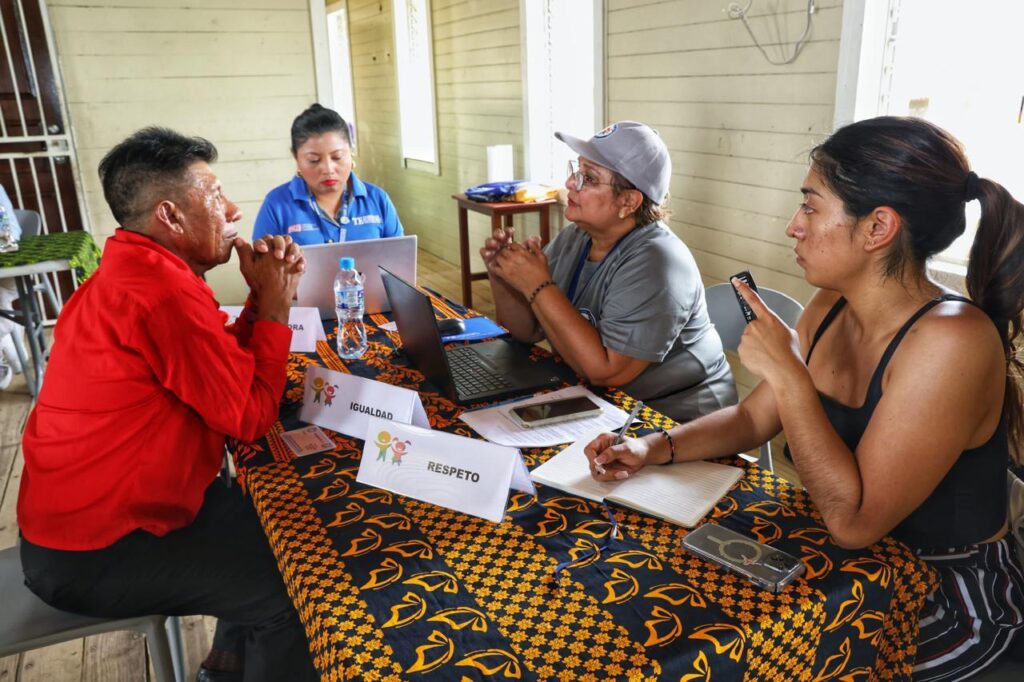
The Electoral Tribunal and INED aim to continue the youth voting project by expanding these elections to other regions and by proactively educating communities on these democratic values. The aim is to foster these democratic values and active citizenship as a way to promote democratic stability in the Panamanian state over the long term.
On a personal level, I enjoyed helping to evaluate this project because I love learning about different lifestyles by interacting with people and listening to their triumphs, struggles, and journeys. I was fortunate to visit a community inside the Darién region and also travel to the Guna Yala Indigenous Peoples community, better known in Panama as the Guna Yala comarca. Both of these regions were so full of life and culture. Coming from an academic background in International Relations and Global Studies and also Race, Indigeneity, and Migration, I greatly valued this experience.
In Guna Yala, I saw the beautiful handmade skirts and shirts the election board members carried with pride at the meeting. They shared with us how family members like aunts and grandmothers had taken the time to sew these colorful and unique cottons together. I also got to see the village and enjoy some of their freshly caught seafood that night. I enjoyed the calmness and friendliness of everyone there; it was a lovely thing to experience.
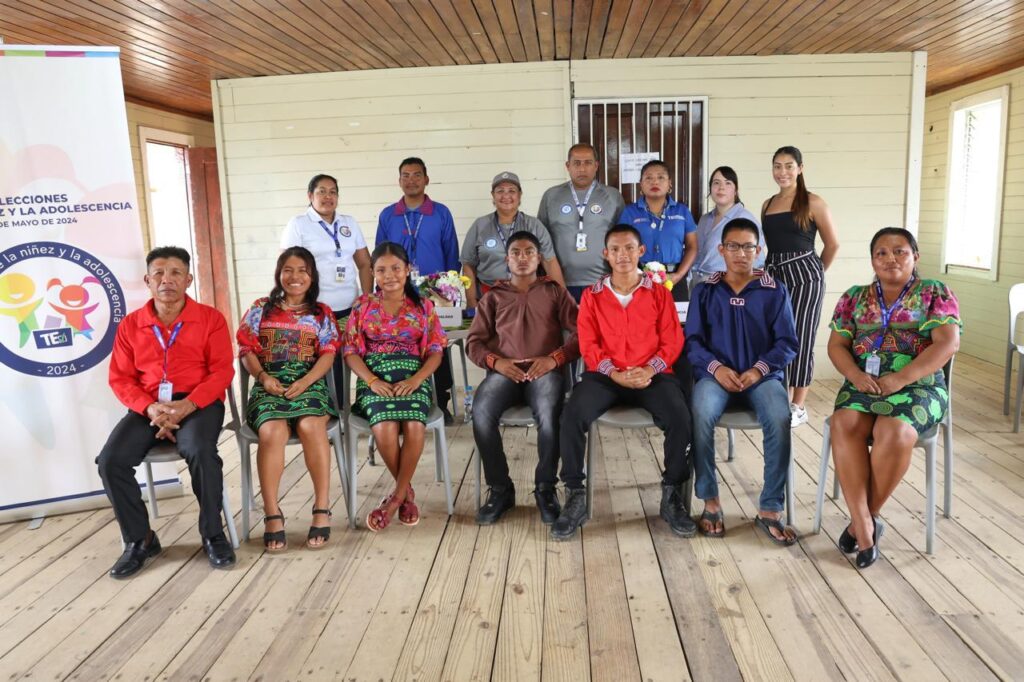
We also witnessed the pervasive effects of global warming inside these communities. About 20 minutes away from Narganá Island where we conducted interviews, we stopped by another indigenous island that is actively sinking due to rising sea levels. Coupled with the effects of unpredictable drought and severe rain on the island, this has left the community no choice but to evacuate its historical landsite to a community being built by the government in the nearest port on the mainland. Some members of the comarca have refused to leave the island and relocate, so a few families are still living on the island despite the threatening conditions.
We stopped by the new on-land community to speak with one of the leaders of the comarca. He explained to us that this migration seemed promising to them since their standards of living were expected to improve by having fast electricity and water, yet the project had faced challenges since they were on their second week with no electricity on site.
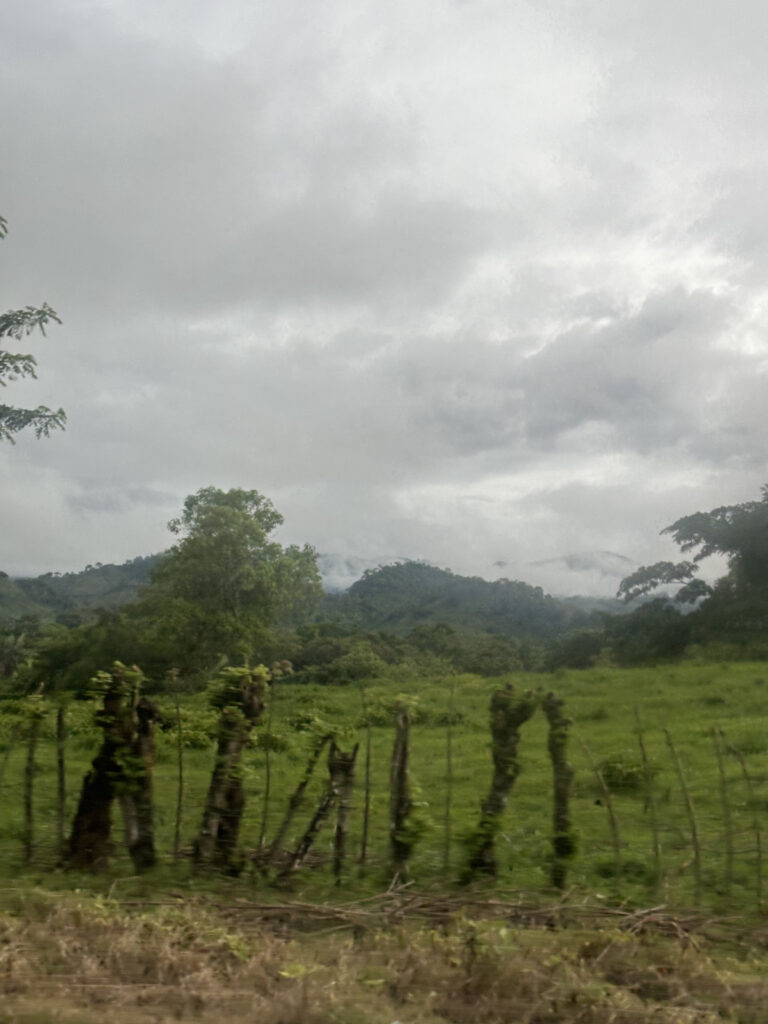
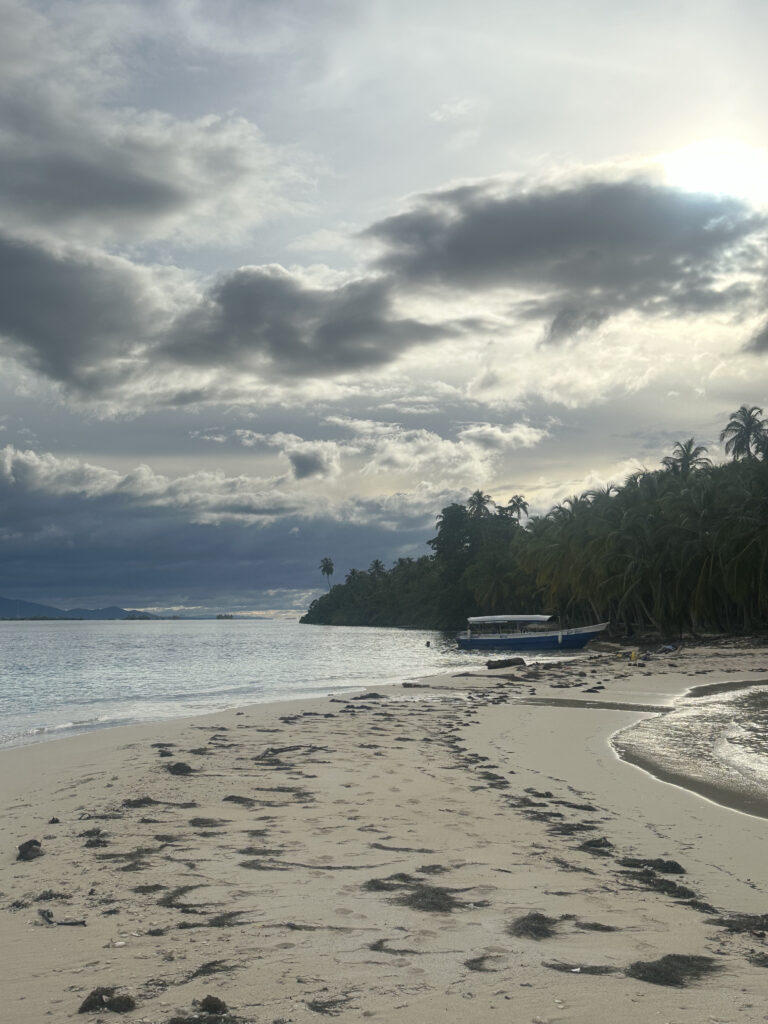
Overall, these visits to indigenous communities held many lessons for me. As an advocate for human rights and indigenous communities more broadly, I appreciated being able to visit these provinces with the sole purpose to engage, listen, and respectfully learn from them. Being part of this evaluation visit once again showed me the importance of community-based research as a basis for proactive solutions, whether it is in election policy or in humanitarian projects.
If those of us working for governments and organizations aim to truly make a difference in our communities, we must have regular conversations with constituents to learn their needs, plan effectively, and routinely update projects to ensure they are meeting their goals. I am grateful to have been able to be a part of this important election evaluation team.
